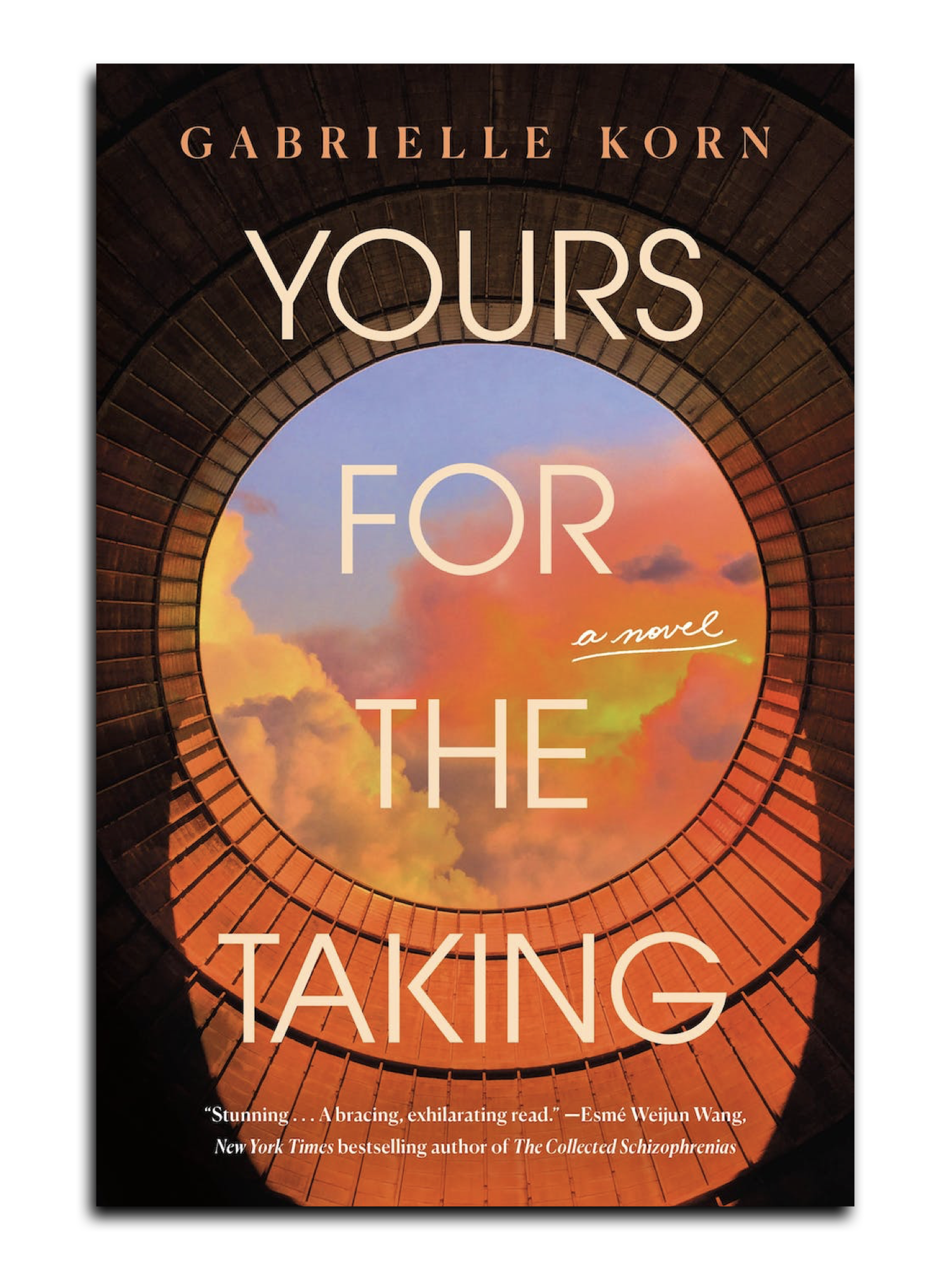Yours for the Taking by Gabrielle Korn
Yours for the Taking is a feminist speculative fiction novel set in the near future, starting in 2050 with an impending climate crisis looming ahead. In an attempt to save humanity, The Inside Project is underway to house those accepted into weather-safe, domed city structures in various parts around the world. While many books out there address this issue (especially recently), in Yours for the Taking, Korn approaches the typical failsafe solution with a critical and timely question: What role is considered for the LGBTQIA people in a survivalist approach to humankind?
Korn's queer representation is fantastic, and the core of the story is a direct hit to the "save the humans" approach we've seen in the past. If the sole mission of survival is simply to take a select group, continue with the status quo, and focus on repopulating the earth, how does that set up the future to be anything different? But Korn's attack method goes beyond a simple and antiquated idea of feminist ideals.
The Inside in New York is funded and headed by a women's rights advocate, Jacqueline Millender. Her billionaire status comes from both family money and because of her own pursuits in a too-late-to-the-game solution called Refillables, a direct answer to address the damage inflicted on the planet with our overflowing landfills and plastic-laden oceans. Additionally, she penned a self-help book about female empowerment, elevating her to icon status. Under her leadership, Millender lays out a plan where the future is just female.
As of 2023, we find ourselves in what appears to be the fourth wave of feminism. The struggle seems endless, and Millender's creation of a city exclusively for women mirrors this ongoing battle. This concept, which might seem inevitable to some, especially considering the misunderstandings by angry men during the second wave, actually stems from outdated notions of feminism, equality, and inclusivity. Millender's influence is pervasive throughout the city, yet doubts arise among key figures: her assistant, the lead medical adviser, and a resident named Shelby, Olympia, and Ava, respectively. Their growing concerns and suspicions follow a story that subverts the typical expectations of a communal, survivalist narrative, turning it completely on its head.
Korn has tackled cisgender corporate feminism fully head on, and the concepts seen in Yours for the Taking are what we've all been waiting on, but this was held back and overshadowed by an issue I had with the book and its voice, pacing, and character development.
Yours for the Taking lands in the realm of adult fiction, but it's mired in a disappointing simplicity. The huge conflicts that bubble up are swiftly smoothed over with solutions too simple to be satisfying. The characters, who should realistically evolve over three decades, seem frozen in time, their growth stunted and their dialogue clipped by stilted language. And to add another layer of frustration, the writing almost exclusively resides in the realm of telling, not showing. Also, the narrative is shadowed by a peculiar point of view, flitting in and out, seemingly torn between a future perspective and an omniscient narrator's indecision about where to plant its feet in the timeline.
Also, if we take a step back from the story for a moment, Korn's take on addressing the larger issue seems to be a humans-only approach. Though it certainly would've overwhelmed the novel, it was disappointing to have this much focus on the coming-soon effects of climate change and not address the flora or fauna.
Korn's Yours for the Taking grapples with contemporary themes, boldly questioning the role of LGBTQIA individuals in humanity's survival and challenging the norms of cisgender corporate feminism. Despite this, the book falls short of its potential for a deep and excavative exploration of humanity, lacking the nuance I really expected from such a rich premise. While the pacing is on point, the predominance of a 'tell, not show' approach detracts from the depth and complexity that could have been a much stronger and more impactful narrative. The characters, stagnant across time, and a narrative voice wavering between different perspectives, add layers of frustration. Nonetheless, Korn's novel is a step in the right direction, stirring necessary conversations and reflection.
I received this book for free from the publisher via NetGalley in exchange for an honest review. This affected neither my opinion of the book nor the content of my review.

